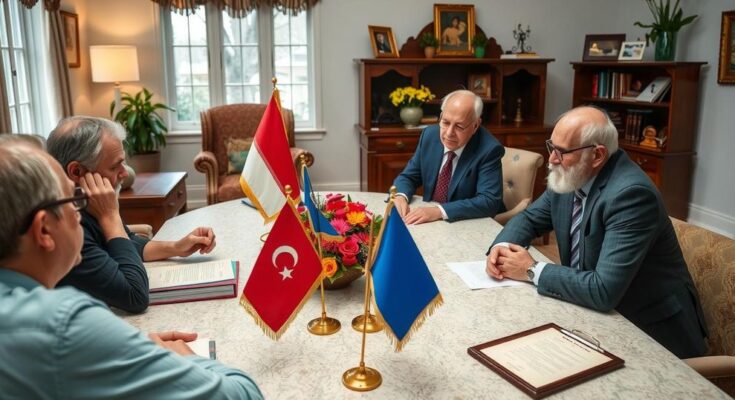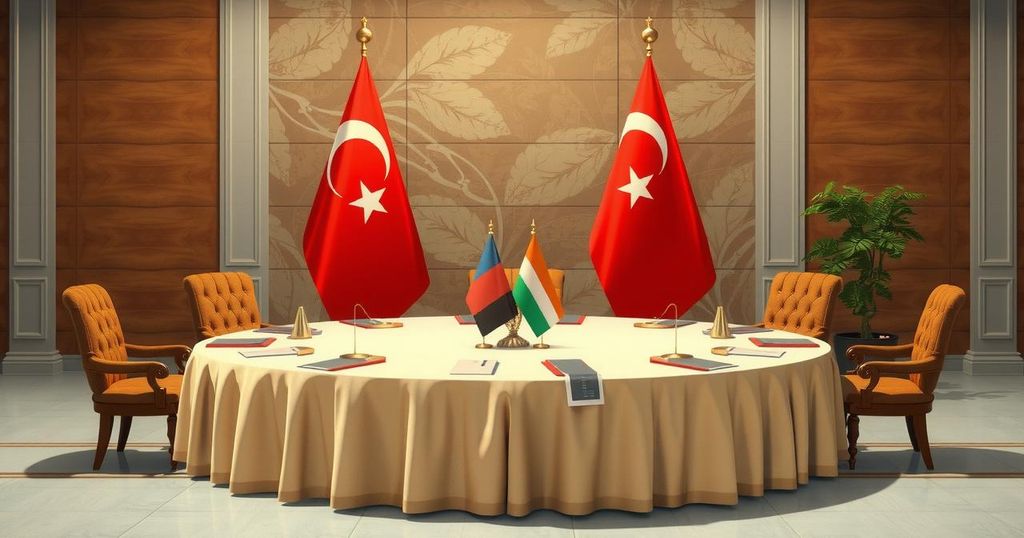During a session in the Lok Sabha, External Affairs Minister S. Jaishankar discussed India’s regional relations, emphasizing the importance of maturity amidst the domestic politics of neighboring countries. He highlighted India’s commitment to development projects and strategic engagement, addressing concerns related to territorial disputes and minority rights in Bangladesh. Jaishankar reiterated the significance of the ‘Neighbourhood First’ policy for regional stability and prosperity.
External Affairs Minister S. Jaishankar addressed concerns about India’s foreign relations with its neighbors during a Lok Sabha session on Friday. Responding to Congress MP Manish Tewari’s inquiries regarding India’s regional dynamics, Jaishankar emphasized the need for maturity in navigating the distinct domestic politics of neighboring countries. He pointed out that India has significantly increased its development projects and trade volume in the region, despite external challenges.
Jaishankar clarified that the Indian government’s foreign policy should not be diminished for partisan politics. He cited the importance of visits from Indian leaders to neighboring nations, highlighting that prior to Prime Minister Modi’s tenure, India had not engaged in high-level visits to Nepal for 17 years, nor to Sri Lanka for 30 years. Moreover, he emphasized the ongoing cooperation in projects with Maldives, asserting that these initiatives reflect India’s proactive approach.
In response to Tewari’s worries about shifting allegiances, such as Nepal’s new prime minister prioritizing China, Jaishankar provided reassurance of India’s commitment to strengthening bilateral ties. He underscored that Indian investments and developmental initiatives have consistently prioritized the region. Discussions also touched upon regional security, particularly regarding the displacement of Indian companies and the implications of China’s economic influence in South Asia.
Jaishankar addressed issues concerning the status of minorities in Bangladesh, recognizing it as a significant concern, and ensured that India continues to discuss this matter with Bangladesh’s authorities. Additionally, he remarked on Nepal’s territorial claims, indicating that such disputes would not affect India’s standpoint. Jaishankar concluded by reiterating the underlying strategy of the ‘Neighbourhood First’ policy, aimed at ASEAN-level cooperation and regional development through substantial infrastructure initiatives.
The context of this report revolves around the dynamics of India’s foreign relations with its neighbors. S. Jaishankar’s statements serve to address the multifaceted political climate within these neighboring nations and the possible repercussions for India. This discourse reflects the government’s focus on maturity and constructive engagement amidst varying political landscapes in countries like Nepal, Maldives, and Bangladesh, highlighting the significance of a strategic diplomatic approach.
In summary, Jaishankar’s comments during the Lok Sabha session underscore the complex interplay between domestic politics in neighboring countries and India’s diplomatic strategies. By promoting a mature discourse and active engagement through developmental initiatives, India seeks to foster stability and cooperation in the region. The ‘Neighbourhood First’ policy remains central to India’s approach, aiming for mutually beneficial relations while addressing regional insecurities.
Original Source: www.hindustantimes.com




